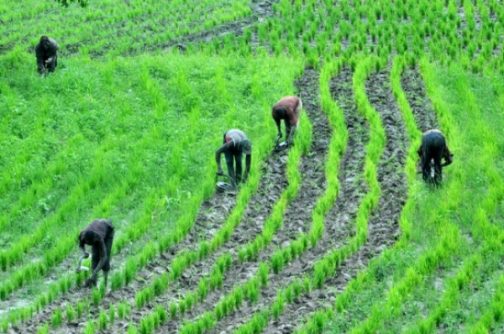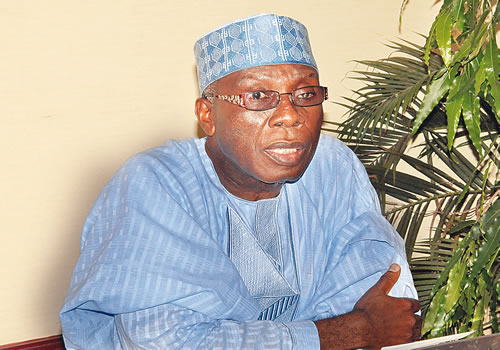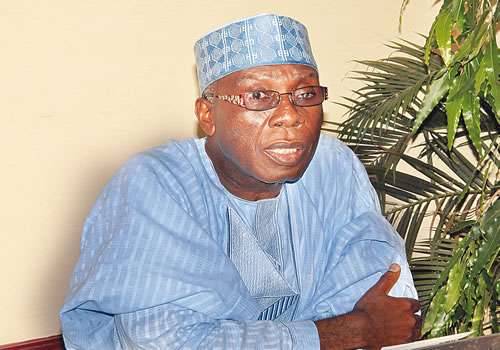The Rice Farmers Association of Nigeria (RIFAN) has commended the Federal Government for its plans to shut Nigeria’s border with a neighbouring country to stem rice smuggling into the country.
Alhaji Aminu Goronyo, the President of RIFAN, expressed the commendation in an interview in Abuja.
The RIFAN president was reacting to the statement of Chief Audu Ogbeh, Minister of Agriculture and Rural Development, concerning plans to close the border because of large-scale rice smuggling into Nigeria through the unnamed country.
Goronyo said that the move had become imperative in view of the current rice revolution in many states across the country and the strategic interventions which some Federal Government agencies had initiated.
He said that if adequate measures were not taken to stop the activities of the smugglers, they would have adverse effects on the expected bumper rice harvests in the country, while creating a glut.
“It is a step in the right direction to ensure self-sufficiency, enable the country to make progress, crash the market prices of locally produced rice and make the huge investment on rice production to be more meaningful,’’ he said.
Goronyo said that although rice importation through the land borders was banned since April 2016, rice smugglers still engaged in the unwholesome act.
He said that even before now, RIFAN and the Nigeria Customs Service had signed a Memorandum of Understanding (MoU) to curb rice smuggling into the country through land borders.
The RIFAN president said that the joint efforts had reduced the activities of the smugglers, adding that the smuggled rice in the country, which largely came in through the informal sector, was just five per cent of what the citizens consumed.
“Any smuggler bringing rice into the Nigerian market would have to think twice because it is no longer a profitable venture, as the landing cost of a 50kg. bag of imported rice is now N20, 000.
“So calculate how much the rice had to be sold for the venture to be a profitable one; honestly, rice smuggling is no longer a lucrative venture,’’ he said.
Goronyo said that as part of efforts to achieve the goals of the anti-rice importation policy, the Comptroller-General of Customs ordered the deployment of capable officers and men to the country’s borders to enforce the order.
He said that the Customs also re-organised its anti-smuggling patrol operations to strengthen efforts to enforce the ban on rice imports via the land borders.
He commended the efforts of the customs service to restore the confidence of RIFAN in its capacity, while assuring the country’s rice farmers of getting adequate markets for their produce.
Goronyo said that rice production in Nigeria had increased from 5.5 million tonnes in 2015 to 5.8 million tonnes in 2017.
He said that in 2015, Nigerians spent not less than N1 billion daily on rice consumption, adding that while spending had drastically reduced, rice consumption had, nonetheless, increased because of increased local production.
Goronyo said that available statistics showed that the rice consumption rate had increased appreciably, while the production rate had climaxed to 5.9 tonnes per annum.
He commended President Muhammadu Buhari for investing massively in rice production, adding that his policies had stimulated the nation’s development.
He assured Nigerians that with the sustained implementation of the Anchor Borrowers’ Programme, RIFAN would assiduously work towards Nigeria’s attainment of self-sufficiency in rice production by 2020


 Entertainment5 days ago
Entertainment5 days ago
 Health1 week ago
Health1 week ago
 Health4 days ago
Health4 days ago
 Football1 week ago
Football1 week ago
 Football1 week ago
Football1 week ago
 Crime4 days ago
Crime4 days ago
 Crime1 week ago
Crime1 week ago
 Education6 days ago
Education6 days ago






